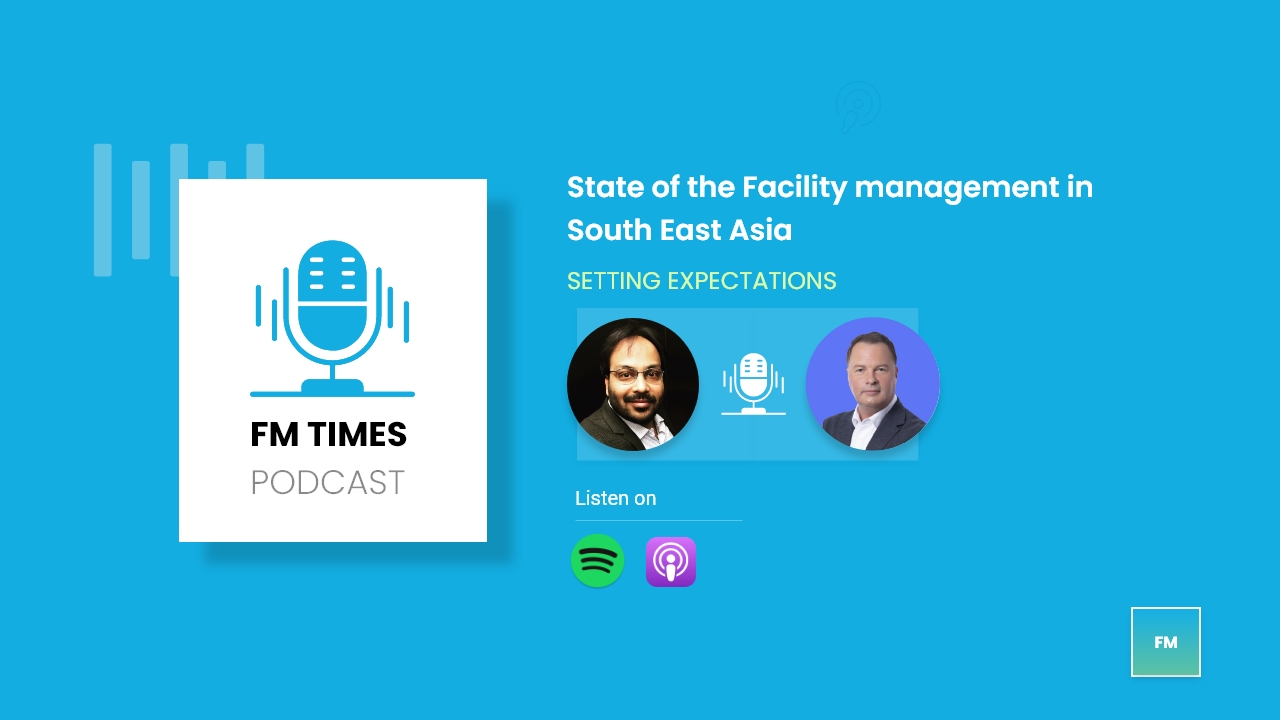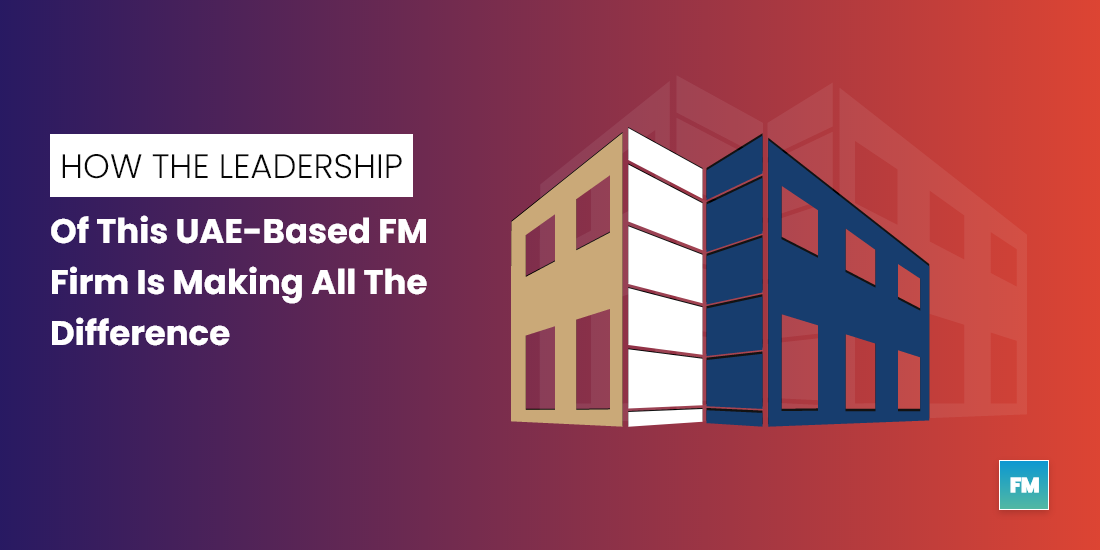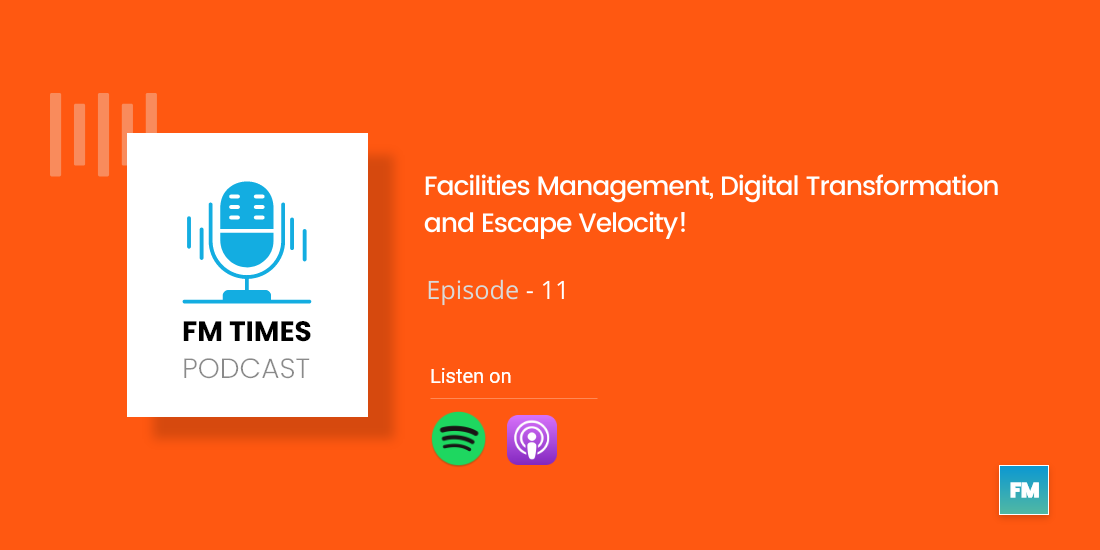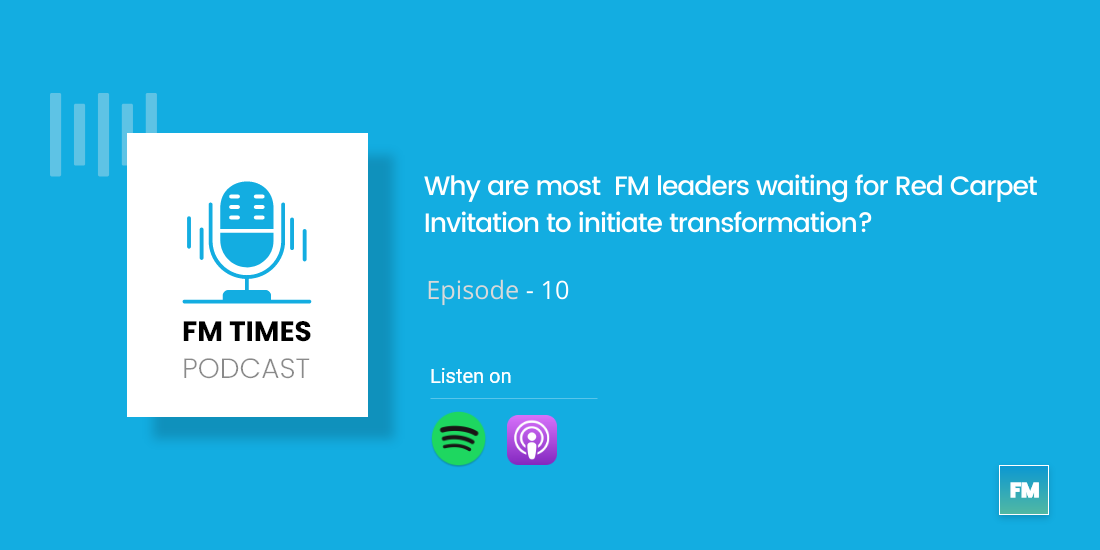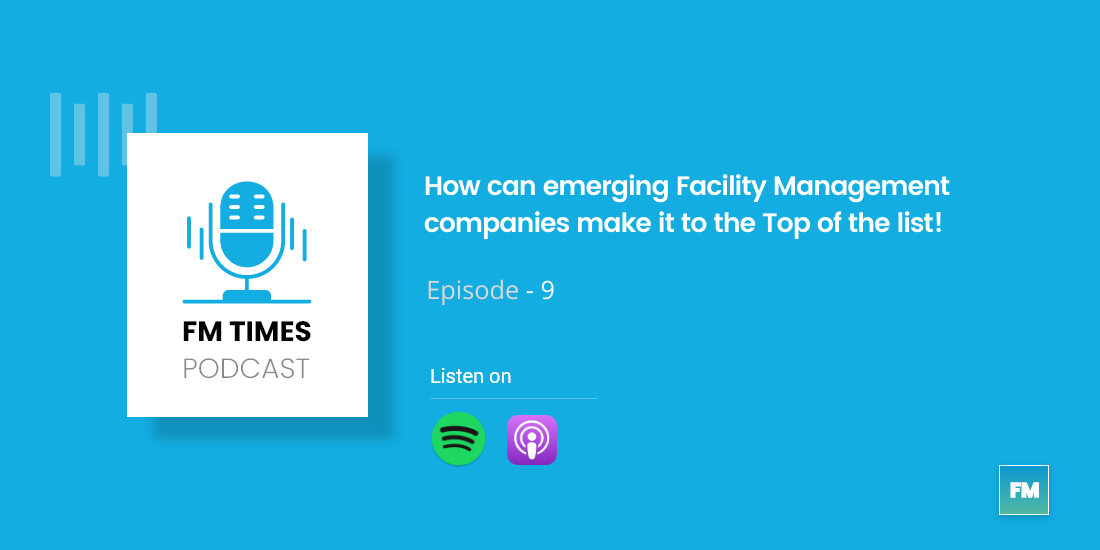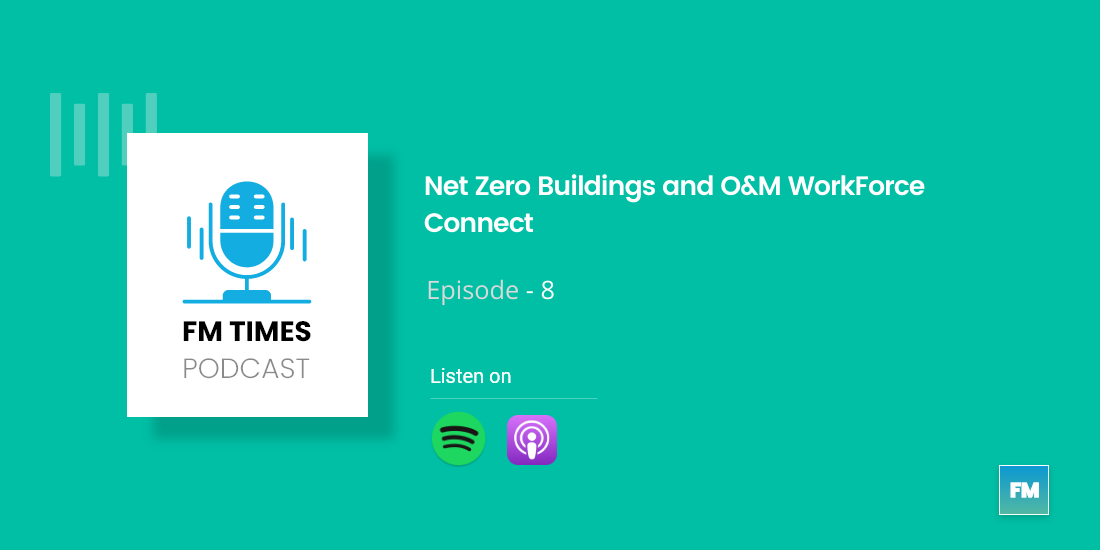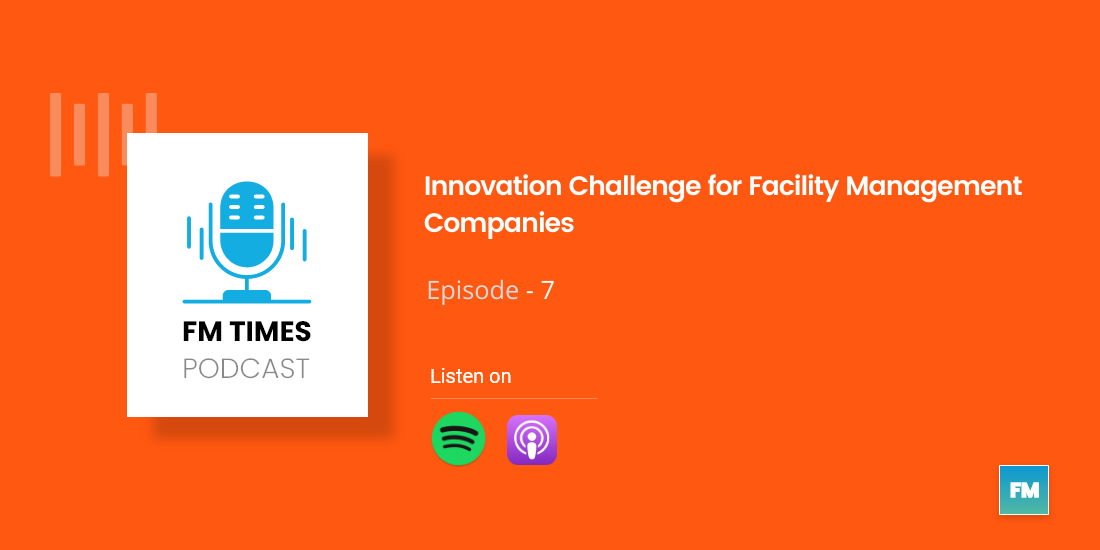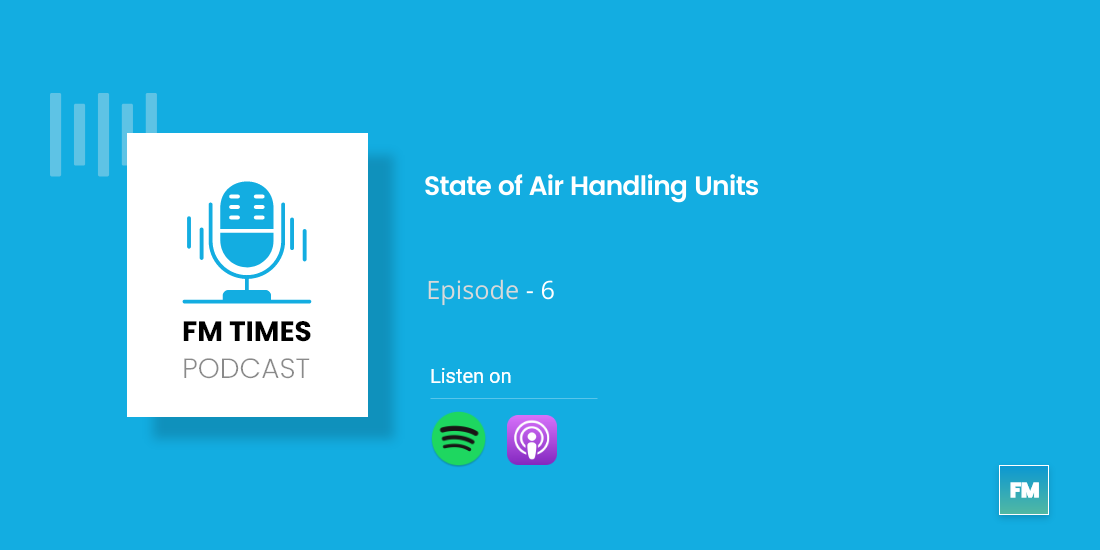‘State of the Facility management in South East Asia’ is a podcast series hosted by Umesh bhutoria, Founder & CEO Xempla in collaboration with James Jessup, Sales and marketing director of PCS Thailand. Through this series, the duo has explored less talked about yet critical to the growth aspect of facility management from a country and global perspective.
In the pilot episode of the series both have discussed the topics they are likely to touch upon throughout this series and what listeners can expect from the 15 odd mins of episodes. Here are some of the highlighted conversations from the pilot episode.
Umesh: Hello everyone I am pretty excited to be with James Jessup, who is currently the sales and marketing director at PCS Thailand but more importantly, he also happens to be the co-host of this amazing podcast series that we are doing around the state of facilities management in Southeast Asia.
The entire idea of coming up with this podcast series is to be able to talk about aspects that everyone wants to talk about when it comes to a state of FM in Southeast Asia yet a lot of people don’t talk about it. As James Jessup (JJ) puts it, we’ll try to address the elephant in the room.
James: Hello Umesh I am really, excited to be a part of this podcast and to collaborate with you.
Umesh: James would love to hear more about your journey so can you tell us a bit about your experience and how have you ended up where you are today?
James: I started off back in 1999, I spent 12 years at spotless and had a really good foundation for understanding the facilities market but having said that it was very much Australia and New Zealand centric development.
I was very keen to explore beyond the shores of Australia. But in essence, the 12 years at spotless, I had six years in hardcore sales, business development I learned from the ground how to be a bid writer, how to do financial modeling, project management, etc later I realized I was becoming known as the sales guy and, whilst I love sales, I didn’t want to be known as just, the sales guy. So I then moved into operations, for the next six years.
So my background isn’t just a guy that likes to sell but also loves Operations. I love to get to know what customers really need and having a bit of a background between both is a great way to keep the tension to make sure that, you stretch yourself to come up with some innovations, and also keep it real.
After completing my stint at spotless I moved to Singapore as a regional/ Asia Pacific solutions director. So basically bidding on regional and global business. Which was a great way to move more into solution mode. Where I made sure that the innovations that we were working on will be embedded into our customers’ accounts across Asia. While working at ISS, I was asked to set up an operational excellence function across the region. The role was really good as a mix of sales and operations and innovation coming together.
And then I joined PCS Thailand as a marketing director, here I am responsible for managing Sales and Marketing for 14 countries.
Umesh: Thanks for a quick run through your entire diverse experience. As you mentioned you have seen things from both sides as the FM and consumer side that too from a sales and operations perspective. So during the discussions whose side are you going to take in? Are you going to be more inclined towards the FM or the customer when we hear you’re talking about the state of FM in Southeast Asia?
James: I think I’m actually torn between the two. I’m going to talk quite openly because ultimately our customers are the reason while we’re here, but equally, there are some customers that could be an elephant in the room themselves and maybe aren’t seeing what you and I and others are seeing across the globe. So it’s a really interesting dilemma. I look forward to talking more about that on our upcoming podcast.
Umesh: That’s awesome. So, James, you’ve been doing this thought leadership video series at PCS. Just wanted to know what was the Genesis of that? and how is it going so far?
James: I think it came out because I had been working in a regional role for the last 10 plus years. And, I was able to experience so many amazing, wonderful parts of facility management, across the globe and I was on a role of making sure that the technology is being embedded into our customers across Asia. But then I very quickly learned that our customers weren’t necessarily aware of what was going on across the rest of the globe and, within the industry. Even at PCS, we were stuck in a comfort zone where we’re just doing what the industry was doing and not pushing ourselves in the industry forward.
So I wanted to start highlighting to our customers, to the industry, and to fellow PCS colleagues that are the possibilities are. So I wanted to create this thought leadership program that had a focus on Data, Technology, and Workplace Experience because these are the three areas that I think will define the benefits FM can provide to our customers, employees, and visitors in the future.
So we are getting really positive feedback from, not only within Thailand but also within Asia and across the globe, much better than whatever I thought it would be. People that I’m engaging with are global experts. So, I’m enjoying the ride and the learning and I hope others can come along and join me on that.
Umesh: Truly great. So we have common or aligning points to discuss and explore.
I remember when we spoke for the first time after I reached out to you and we were talking about how important it is to open up and share with an unbiased intention with the community because this community is a lot inward-looking and there’s so much happening, that things need to change. And that’s where we decided to do something together.
So I would still like to hear from you on, what your objectives are from doing this podcast series?
James: I would like to invite our community together to get to discuss and kickstarts not just the views of JJ and Umesh, but many others. So I’m really hoping that we get some of the listeners to give us some feedback to say that we’re wrong or that things are different.
I really want to be challenged and stretched which ultimately leads to creating a discussion to make the industry move forward and everyone can benefit as a result.
Umesh: Right. That is our perspective. But what do you think can listeners expect from the series?
James: I think we’ll find out pretty quickly after the first couple of episodes that we go through. So I’m not going to predict, but I’m just really excited about the uncertainty of where this could take.
Umesh: Absolutely. For me, the idea is not to give solutions. Probably we will try to give certain solutions or frameworks, but the entire idea is to really talk about things that people aren’t really talking about, but they know that they have to talk about it and sometimes I think asking the right questions is half or more than half the job done in terms of trying to get to the right answers.
So hoping that both of us and the people who are listening to the podcast series can contribute to the conversation in different ways as they can either by leaving messages on the podcast or our LinkedIn / Twitter handle.
We’ll reach out to the community far and wide and when we have their feedback and questions, we’ll take a poll of the points that we think are important. For this series, our focus is going to be on Asia, particularly Southeast Asia in trying to look at how things are changing globally and then take a look at what’s happening across Southeast Asia.
So from my perspective, it’s all about asking the right question or engaging in a conversation that drives or at least challenge the status quo, and hopefully, all of it leads to a positive movement.
